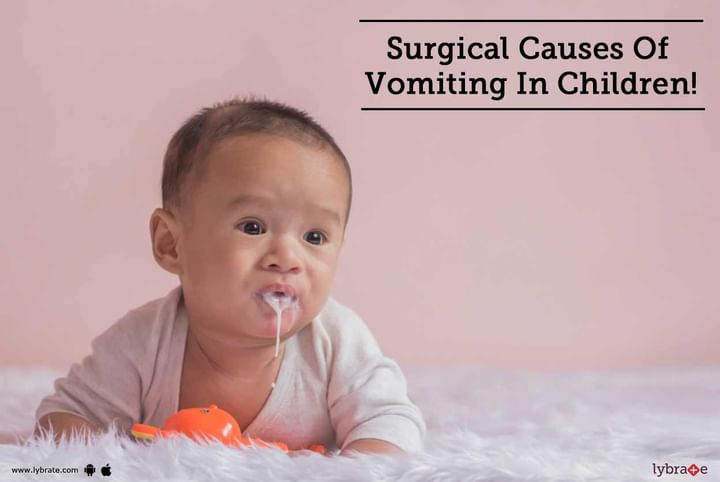Surgical Causes Of Vomiting In Children!
Vomiting in infants and kids are very common. Most of the vomiting cases do not require patients to see a doctor. But there are some conditions that cause forceful vomiting in babies and infants leading to dehydration.
One such condition is called Infantile Hypertrophic Pyloric Stenosis. Infantile Hypertrophic Pyloric Stenosis is a problem that affects infants and requires the immediate attention of a Pediatric Surgeon. In this disease, the lower portion of the stomach known as Pylorus is blocked. Due to the blocked Pylorus, the food in the stomach cannot enter the small intestine. Due to this obstruction, the child experiences vomiting persistently.
Risks Prone to Pyloric Stenosis -
-
The disease is more common in boys than girls.
-
Children from white race are more prone to Pyloric Stenosis.
-
There is evidence of genetic predisposition.
Symptoms -
The most common symptom of Pyloric Stenosis is frequent and projectile non-bilious vomiting in kids. Whatever feed they take from mothers is vomited after few hours. However, the vomiting is different than that of wet burps which are very common among infants.
-
Kids remain hungry after vomiting
-
Ongoing crying
-
Lack of energy i.e. lethargic
-
Sleeping
-
Fewer bowel movements
-
Bloating and constipation
Diagnosis -
In addition to the physical examination the following investigations are done:
-
Blood tests to evaluate dehydration and electrolyte imbalance.
-
Abdominal ultrasound is diagnostic to know the presence of pyloric mass and the length of pyloric canal
Treatment -
The only practical course for treating Pyloric Stenosis is to operate the infant. However, first doctors administer the infant with the medicines and IV fluid to treat dehydration and electrolyte imbalances. Once the baby is hydrated and ready to get operate, surgery is performed.
TAKE AWAY -
Consult a Pediatric Surgeon if your child is vomiting after feeds. He needs evaluation to know the cause of vomiting and treat accordingly.



+1.svg)
